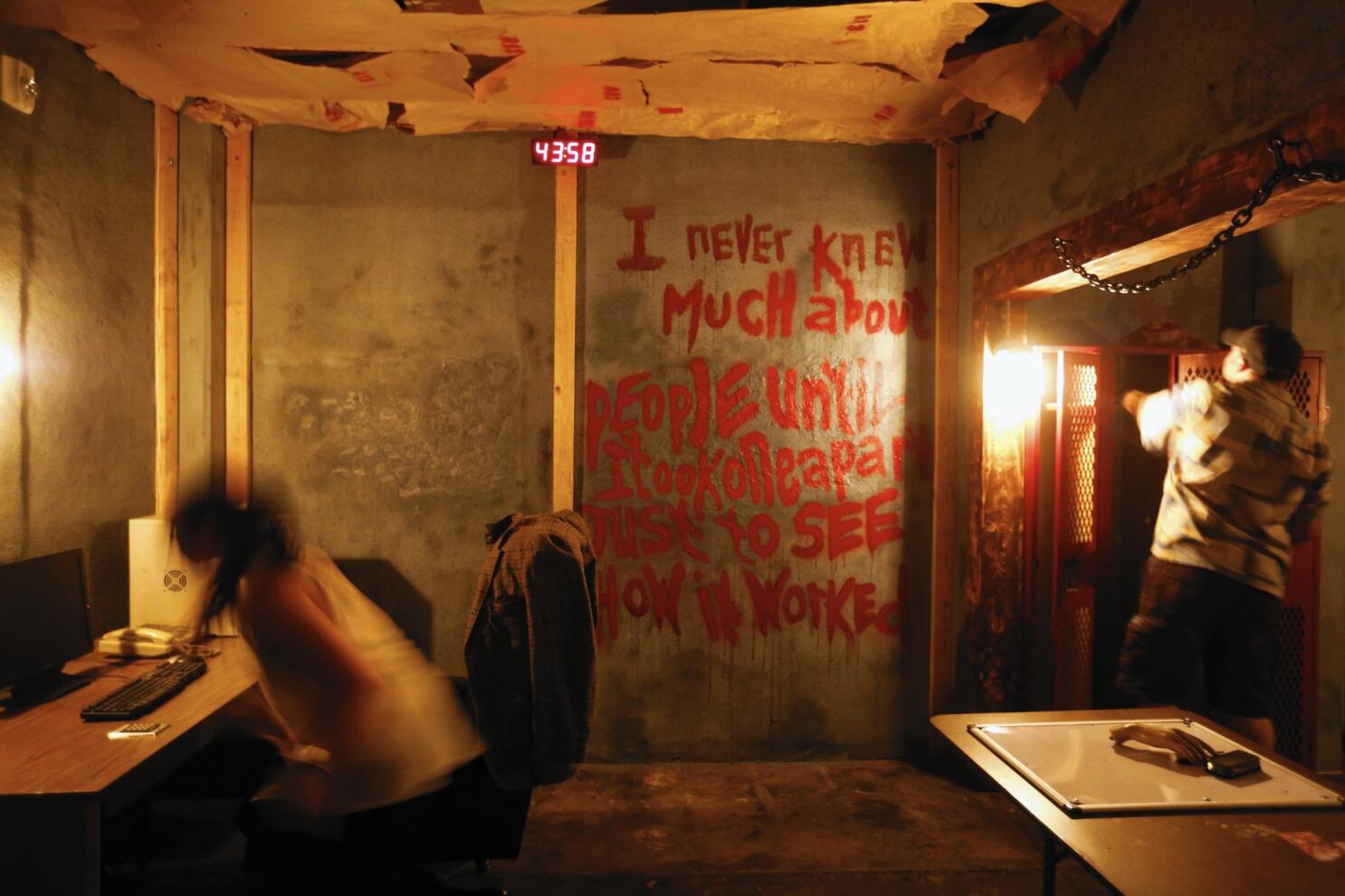Team Tasks at Minneapolis Escape Room-- Perfect for Friends and Household
Wiki Article
Group Strategies: Just How to Collaborate Effectively in an Escape Room
Groups must proactively listen to each participant's understandings, designate roles that line up with specific strengths, and maintain routine check-ins to make certain focus and stop redundancy. By promoting an environment that values cohesion and flexibility, teams can considerably enhance their effectiveness and success prices.Establish Clear Communication

To promote clear interaction, it is vital to assign a main factor of contact for details dissemination. This function includes summing up findings and suggested approaches to guarantee every person continues to be on the very same page. In addition, taking on a systematic method to conversations can avoid disorderly exchanges. For example, quick, focused updates from each employee can maintain the group informed without overwhelming them with info.

Designate Duties Tactically
While clear communication sets the foundation for reliable team effort, assigning duties strategically guarantees that each staff member's strengths are used efficiently. In a getaway area scenario, the time-sensitive and intricate nature of difficulties necessitates a well-organized technique to task delegation. By recognizing and leveraging specific proficiencies, groups can maximize their analytical capacities and improve overall performance.First, analyze the distinct skills and characteristics of each individual. For example, a person with an eager eye for detail might master finding hidden items, while a sensible thinker can be much better matched to addressing challenges - best escape room. It's similarly vital to have a leader that can supervise progress, handle the timeline, and make definitive calls when essential. This role often calls for strong business and social abilities.
2nd, make certain that functions are adaptable and adaptable. As new difficulties arise, the group needs to be able to pivot, reapportioning tasks as called for. This adaptability helps preserve momentum and stops traffic jams that could happen due to stiff function jobs.
Ultimately, a calculated method to duty assignment not just makes best use of the strengths of each staff member but also fosters this website a natural atmosphere, driving the group towards a successful retreat.
Use Diverse Skills
Identifying and harnessing the diverse abilities within your group can dramatically boost your performance in an escape area. Each staff member brings distinct toughness to the table, and properly leveraging these capacities can expedite analytical and enhance general performance. As an example, a staff member with solid analytical abilities might succeed at understanding complex codes or patterns, while one more with eager observational capabilities may swiftly spot concealed clues that others may ignore.
Motivate group members to voice their understandings and concepts quickly, making sure that all prospective options are taken into consideration. Furthermore, appointing tasks that align with each participant's toughness can protect against bottlenecks and ensure that progress is continuous.
Furthermore, variety in skills frequently translates to variety in believing styles, which is indispensable in a retreat space setting. While some difficulties might call for rational reasoning and precision, others might benefit from creative and side reasoning. By identifying and leveraging this websites variety, teams can deal with a broader series of difficulties better, thereby raising their possibilities of a successful getaway.
Manage Time Properly

Identify visible puzzles and split tasks based on group participants' toughness, guaranteeing that no one is still. This method can aid maintain the team concentrated and stop time from slipping away undetected.
Furthermore, avoid tunnel vision. If a problem is taking as well long, rotate group participants or proceed to an additional difficulty, returning later with fresh perspectives. Interaction is vital-- keep every person updated on solved challenges and remaining jobs to find out here now prevent redundant initiatives.
Lastly, make use of any tips or clues moderately yet tactically - best escape room. Knowing when to request aid can save valuable time. By sticking to these time management principles, teams can dramatically enhance their opportunities of a successful and enjoyable escape area experience
Debrief and Reflect
Representation is a necessary aspect of team growth and enhancement in the context of escape spaces. Once the difficulty is finished, whether successfully or not, it is essential for the group to participate in an organized debriefing session. This procedure permits employee to analyze their efficiency, recognize strengths, and identify areas for renovation.Begin the debrief by discussing what worked out. Highlight details instances of effective communication, analytic, and cooperation. Recognizing these favorable actions reinforces them and encourages their repeating in future obstacles.
Talk about moments of confusion, miscommunication, or inadequate approaches. Motivate an open and constructive dialogue where group participants can share their viewpoints without anxiety of objection.
Verdict
In conclusion, effective collaboration in a retreat room is predicated upon clear interaction, tactical duty projects, the efficient utilization of varied skills, and skillful time administration. By producing a cohesive and flexible team atmosphere, the chance of efficiently solving challenges and attaining the goal of running away the room is dramatically improved.Report this wiki page